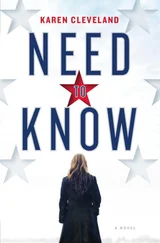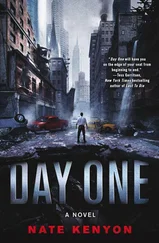Upstairs, Luisa was making ready to leave. ‘Where were you last night?’ she said irritably.
‘Did Pastor Levi come?’ I said. I looked around the flat. The boxes containing our father’s life were still there.
‘Yes, he came. Spent more time talking to that girl than to me,’ she said. ‘Private talk. Quiet talk. Like she can discuss her affairs in my house and it’s none of my business.’ I imagined Pastor Levi sat in a corner with Lorna, his voice dropping if Luisa made to busy herself nearby. ‘Landlord doesn’t want to buy the furniture,’ she continued. ‘I guess you can give it to the Pastor. I can’t be bothered with it any more. Miguel will only drink the money anyway. You’ll have to move all those boxes when the Pastor’s ready for them. I’m leaving this afternoon.’ She looked at her watch and then, looking up at me, added, ‘No need to look so pleased about it.’ She pulled a face but I could see that it was a relief for her too. I suppose we only knew how to be our old selves in each other’s company.
Luisa knelt down to pull the boys into their clothes. They were sluggish in the heat and uncooperative. I started to collect their toys. ‘Lottie and Lando have gone then,’ I said.
‘Who?’
‘The House-on-Wheels.’
‘That junk heap in the courtyard? Yeah, they’ve gone. The girl was at Bina’s just earlier.’
‘Lorna?’
Luisa regarded me shrewdly. ‘Yeah. Your wife .’
I didn’t bite. ‘And the baby?’
Luisa shrugged as she finished dressing the children. ‘With her. Why, you thought maybe she’d eaten it? Or lost it playing Tong-its?’ I was surprised at the sudden tempest I felt then, which was as much relief as it was dismay. I pinched my nephews’ cheeks gently but they turned away without smiling, pushing their faces into their mother’s breast, her neck. Luisa rested her cheek against the youngest’s hair for a few seconds. ‘I miss him, Joseph. I miss her too,’ she said. I was annoyed with her for wanting to open such a conversation now, at the eleventh hour, not knowing what memories she might exhume and leave me to contain on my own. I moved to the door, gathered up her luggage and walked out. I heard her fuss at the children as they started after me, one for walking too slowly, the other for not waiting. I stacked the bags at the base of the stairwell and went in search of a cab.
When I returned she was chewing her lip and she looked away from me as I stepped out of the taxi. She looked sour, her eyes bright, the lashes clumped and wet. She settled the children into the cab, kissed my cheek before climbing in after them. When the cab pulled away, she stared straight ahead, not permitting me even at the last to look into her eyes.
Aunt Bina’s door, like most of our neighbours’, was often left ajar and, as always, I walked in without announcing myself. Marisol lay on her back on the mat, her limbs playing in the air above her, her eyes intent on the brightly coloured strips of cloth tied around her wrists and ankles. Beside her, carefully, clumsily, Lorna stitched away at something. She looked up as I came in and smiled. Elisa and Bina came through from the kitchen, dragging between them a large sack. Bina pulled a handful out of the sack and scattered it over the floor: old clothes, offcuts of fabric.
The women sat down to stitch and I sat with them, sorting the fabric into piles of different colours, running the softer ones over Marisol’s face to make her smile. I thought how bright her eyes were, how hard she worked at taking everything in. An unwritten story, I thought; in her eyes the clarity of a life rich only with beginnings. I wondered how long it might be before that clarity was lost. And I understood then, quite suddenly, how Lorna and her baby might be for me too, as much as they had been for my father, a second chance. It dawned on me that in some way I’d just been reprieved, for if Lorna and Marisol had not been at Bina’s, if they’d already been pulled back into the world of the House-on-Wheels, I would never have found it in myself to pursue them out onto Esperanza and on down the coast road while the sea turned indifferently on one side. Despite my daydreams of heroism, I’d have been struck by the same paralysis that stopped me on the night of the jetty fire, fastening me to the spot while others around me acted, while my father hurried towards his own death. But Lorna and the baby were here and all that was required of me was to make a choice that was being presented to me once again. Yet even as I made my choice, as I decided the kind of man I was going to be, my heart was far from quiet.
Lorna put her sewing down on her lap and stroked Marisol’s foot lightly. ‘Maybe in a couple of years there’ll be enough for you and Elisa to go to college,’ she said eagerly. Bina glanced at her but not at me, and I thought how open Aunt Bina’s face had always been, how unsuccessfully she hid her thoughts.
Neither Aunt Mary nor America was in when I returned to the boarding house. I attended to my chores taking more care than I usually did, carrying out each task slowly, more purposefully, as if to imprint the textures of each movement, each object. I started to polish the piano, though there were other, more pressing jobs. The house was empty and I lifted the lid, ran a finger lightly to and fro over the surface of the keys before depressing a single key in the centre of the keyboard. The sound, louder than I’d expected, filled the still house and, shutting the lid quickly, I listened to its ghost die away in the afternoon air. It had barely faded when I heard keys in the front door, and Aunt Mary and America walked into the hallway.
I went out to them and took their bags. ‘Has your sister left yet?’ Aunt Mary said as the women followed me into the kitchen. I was glad she’d asked; it would be easier to turn the conversation to what I had to say.
She was quiet as I told her and for a moment or two afterwards. As I watched her, waiting for her to speak, it occurred to me for the first time since I’d come to her house how lonely Mary Morelos must have been, how losing her money had marooned her. If she was surprised by what I’d said she didn’t show it. I thought she looked a little sad. She didn’t try to change my mind. ‘I’d have liked to see you finish high school,’ was all she said.
Later, in my room, I looked about me at everything I’d thought of as mine in the world. Like my father, I thought — no great love of things . The room that had contained much of my life for the past five years appeared to me as it really was: small, empty. I would miss it, but only in the way of a bird whose cage has been left open and who hesitates, momentarily, to leave.
When I was six or seven my mother found a mouse’s nest in our kitchen, in a pail inside the low cupboard on top of which she often prepared our food. She was surprised, and yelled, and my father came running. The mouse had just had a litter and the three baby mice, blind and naked, squirmed around the mother, who pushed herself up against the sides of the pail, her fur bristling, aware of the threat of us. Seeing the mouse and her brood, my father took off his slipper and raised it over his head, but my mother caught his arm and, pressing it down towards his breast, looked hard into his eyes. My father ran his hands through his hair, uncertain what to do. The mice couldn’t stay, my mother knew it and she smiled at me, stroking my head when I asked if I could keep them. Eventually, my father picked up the pail with the mice inside and took it down to the courtyard, tipping them out, gently, behind a white oleander bush. He looked up to where I peered over the railing, my mother’s hand on my hair. Afterwards my mother was quiet and I asked her if she missed the mice. She laughed then briefly. My father said, ‘They’ve got a new home under the adelfa . They can smell its flowers all summer.’ All summer, though I never caught sight of them, I imagined the baby mice growing up in the garden and thought how much better that might be than living in a pail in our kitchen. I laughed softly when I thought about it now and remembered too how my mother had also told me it was bad luck to move a spider away from the place it had chosen to spin its web. ‘It won’t just spin another web,’ she said. ‘It will die because it has been torn from its own life.’
Читать дальше












